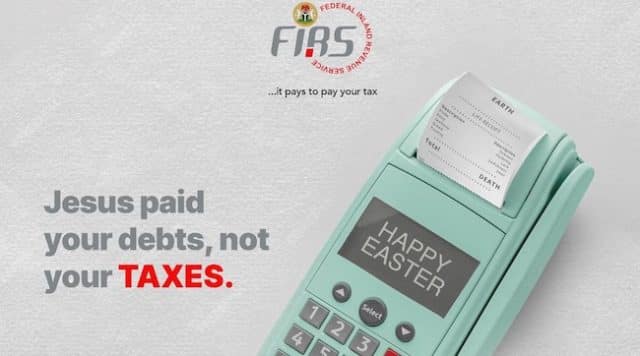Nigeria News
Your Easter Message Provocative, CAN Demands Apology From FIRS

The Christian Association of Nigeria (CAN) has called for a public apology from the Federal Inland Revenue Service (FIRS) following an Easter-themed advert that sparked controversy among the Christian community.
Naija News reports that the FIRS posted an image on X (formerly Twitter) under its official handle, #FIRSNigeria, featuring a point-of-sale machine alongside the caption, “Jesus paid your debts, not your taxes.”
This action led to widespread criticism, especially from Christians who found the message offensive.
Although the FIRS has since removed the contentious post, CAN’s National Director of National Issues and Social Welfare, Abimbola Ayuba, issued a statement on Tuesday urging immediate action from various government bodies, including President Bola Tinubu, the Minister of Finance, Wale Edun, and the Department of State Services.
The statement highlighted the need for the FIRS to adopt communication strategies that uphold respect, unity, and peace, emphasizing the importance of religious harmony in Nigeria.
“In the light of recent events, we call upon the management of the FIRS to retract the message and offer a public apology for the distress caused,” Ayuba stated.
He further expressed concern over the recurrence of provocative messages during religious holidays and criticized the public institution for its role in disseminating content deemed derogatory to the Christian faith.
CAN articulated the significance of the Easter period as a solemn time for reflection and observance within the Christian community, stressing that it should not be inappropriately linked with civic duties such as tax payment in a way that disrespects religious beliefs.
The statement added, “The analogy drawn by the FIRS between the pivotal Christian doctrine of redemption and the civic duty of tax payment has been received with distress and indignation by the Christian community.”
The association also advised both public and private organizations to consider Nigerians’ diverse religious backgrounds in their communications.
It emphasized that messages, especially from public institutions, should be crafted with an understanding of the nation’s cultural and religious diversity, to foster an environment of respect and peaceful coexistence.
This incident has highlighted the delicate balance required in public messaging and the importance of sensitivity towards different faiths in Nigeria’s multicultural and multi-religious society.











